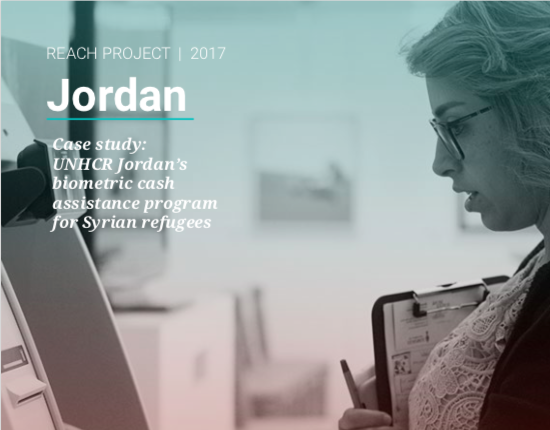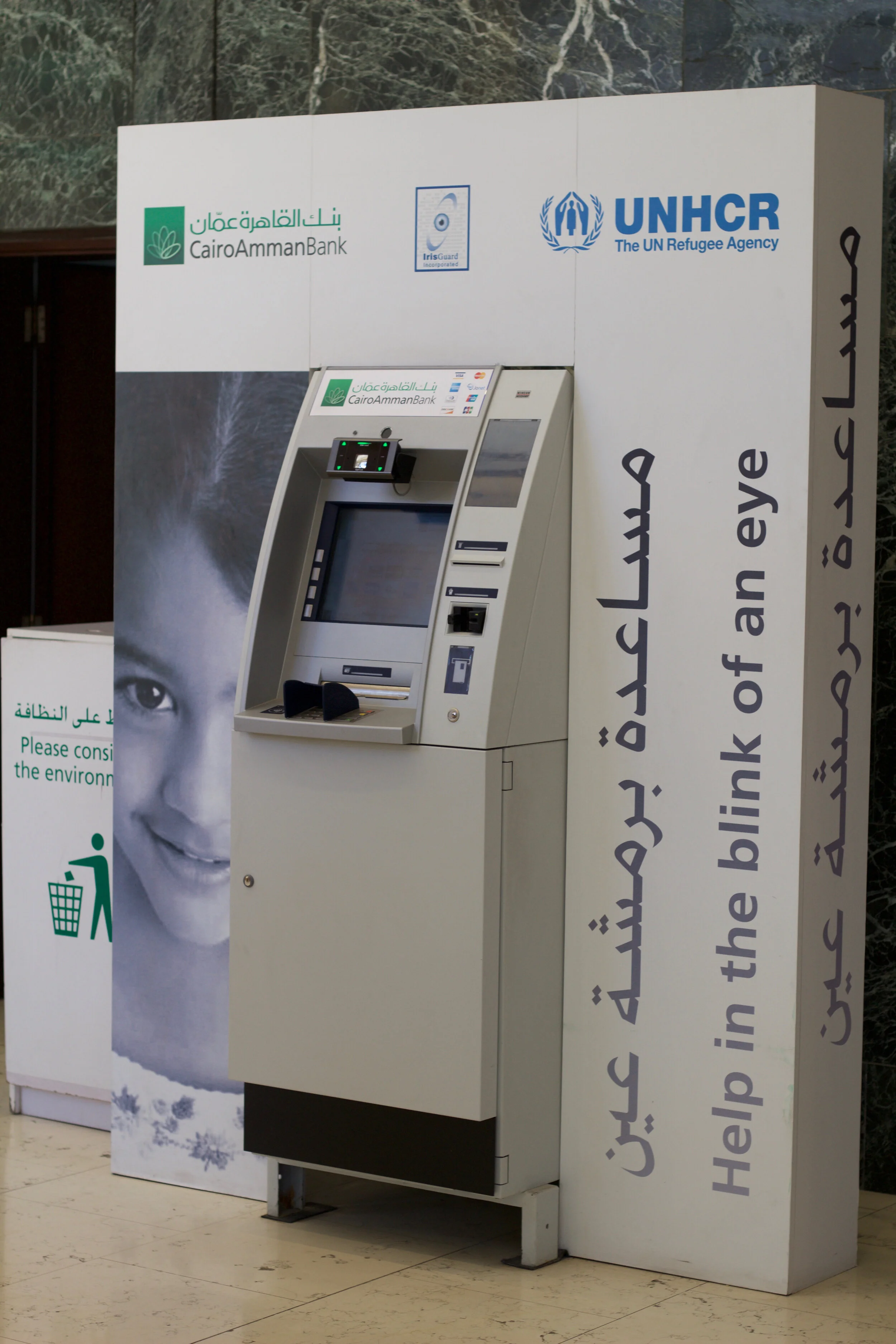Jordan
Since the onset of the Syrian crisis in 2011, over 650,000 Syrian refugees have entered Jordan and registered with the United Nations High Commission for Refugees (UNHCR). According to data from UNHCR Jordan, as of March 2017, 79% of registered Syrian refugees live outside of traditional refugee camps. As of May 2017, 93% of urban Syrian refugees in Jordan lived below the poverty line. UNHCR Jordan provides cash assistance to the most vulnerable Syrian refugees living outside of Jordan’s camps. As of February 2017, UNHCR Jordan’s monthly cash assistance reached 30,000 of the most vulnerable Syrian families, totalling 135,783 Syrians. In addition to monthly cash assistance, UNHCR Jordan also provides winterization supplements to help families prepare for cold temperatures. According to UNHCR’s 2014 Jordan Home Visits Report, UNHCR Jordan’s iris-scan cash assistance program has “contributed to a 20% reduction in the number of [families] living below the poverty threshold of 50 JOD/month (71 USD)”.
RESEARCHERS
Adam Sheikh
Marin Mcleod
Marin is the Knowledge Management & Translation Coordinator at Grand Challenges Canada, where she focuses on the systems and processes used to capture results and share knowledge generated by innovators and through the organization’s unique innovation platform. Marin holds a Master in Public Health - Global Health Emphasis from the Dalla Lana School of Public Health at the University of Toronto. Marin researched UNHCR Jordan’s biometric cash transfer program during her time with the Reach Project.
Daniel Park
Natalie Boychuck
Natalie is currently completing her degree in Peace, Conflict, and Justice and French. She was a Reach researcher from 2017-2018, working with the Jordan team to better understand the efficiency of UNHCR's biometric cash assistance program for Syrian refugees. Natalie is currently working with Grand Challenges Canada as a research assistant for the Humanitarian Grand Challenge, which aims to enable local manufacturing of innovations for the most vulnerable trapped in conflict. She is particularly interested in how innovation can address challenges women face in accessing services.


